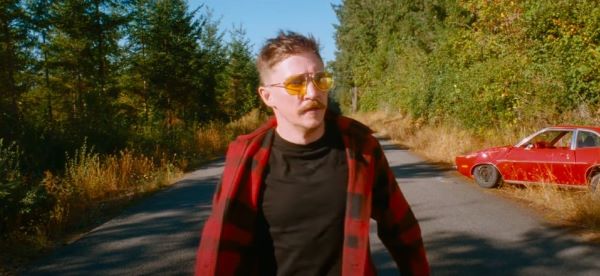2024/1h 50m
“Speak No Evil” – a psychological thriller written and directed by James Watkins – begins its push-pull of nervous energy from the very first frame. After a mysterious, night-time opening shot, we’re introduced to an American family on vacation in sunny Italy. Louise Dalton (Mackenzie Davis), her husband Ben (Scoot McNairy) and their daughter Agnes (Alix West Lefler) are trying to enjoy the trip, but can’t quite seem to relax, despite the scenic views and scrumptious food. For one thing, Louise and Ben disagree on a parenting issue. Ben wants Agnes, almost 12, to put away, once and for all, a stuffed rabbit named Hoppy, which she holds tight when she feels anxious. Louise feels it’s better not to make a big deal about it.
One day, while strolling around town, they encounter another family: friendly and charismatic Paddy (James McAvoy), easy-going Ciara (Aisling Franciosi) and their sweet son Ant (Dan Hough), who is a few years younger than Agnes and has trouble communicating. Paddy instantly impresses Agnes by offering her a ride on his snazzy Vespa.
Later, as the two families share a meal, Ben and Louise reveal that they relocated to London for Ben’s career, but his job was downsized shortly after they moved. Louise works in PR; however, it’s been hard for her to build a new network of contacts. Paddy, a doctor, Ciara, a stay-at-home mom, and Ant live in England’s west country.

The two families meet in Italy. From left to right: Mackenzie Davis, Alix West Lefler, Scoot McNairy, Dan Hough, Aisling Franciosi and James McAvoy.
Once the holiday has ended and the Daltons are back in London, they’re at a loose end workwise and their marital problems are bubbling to the surface. When they receive a letter from Paddy inviting them (for the second time) to come for a visit, Ben and Louise hesitate – it’s a lot of time with new friends they hardly know. On the other hand, they’ve had a nice time together so far and Paddy’s charm makes it hard to say no. After all, what could go wrong?
Quite a lot, actually, with awkward moments starting almost as soon as they arrive at Paddy and Ciara’s rustic farmhouse. Red flags keep popping up and the extent to which Louise and Ben choose to ignore them allows “Speak No Evil” to be a dark comedy of manners as well as an excellent suspenser distinguished by superb storytelling. Though the third act plays out in familiar slasher-movie fashion, it’s preceded by interesting characters played by talented actors, a mood of quiet malice and stunning cinematography (shot in Croatia and Gloucester, England). McAvoy is completely convincing as the jovial alpha male with an undercurrent of hostility while McNairy makes beta male Ben relatable if not entirely likable. Mackenzie Davis is terrific as Louise, who can take charge when needed. Aisling Franciosi plays Ciara with a sweetness that slow-burns into edgy weirdness. Both child actors are excellent as well.
Also, director Watkins (“Eden Lake” 2008 and “The Woman in Black” 2012) deserves praise for the unhurried pacing. (That could be a nod to the Danish film of the same name from 2022 directed by Christian Tafdrup on which Watkins based his movie.) As the story unfolds little by little, layer by layer, we learn more about the cracks in Ben and Louise’s marriage, cringe at the uncomfortable exchanges between the couples, and see well beyond the surface of Paddy and Ciara’s cozy family life – especially when Paddy quotes Philip Larkin’s famous lines about parents and humiliates Ant while the kids are performing a dance they’ve rehearsed. Once the social niceties subside and the polite forbearance finally ends, Louise and Ben must trust each other 100% and work as allies – not to mention wield deadly weapons – to survive this idyllic country getaway, which has spiraled into chilling insanity.
“Speak No Evil” opened Sept. 13 and is playing in theaters nationwide.












From FNB readers